A Flight Attendant's View of Service Animals
Heather Poole
 Since there is no real certification for service or emotional support animals, anything goes. Flight attendant Heather Poole is fed up with trying to make everybody happy. She questions the credibility of "emotional support" pigs, horses and monkeys. Yes, these are the types of animals she's had the pleasure of accommodating on her LA to NY route, but she's pretty much seen it all and then some.
Since there is no real certification for service or emotional support animals, anything goes. Flight attendant Heather Poole is fed up with trying to make everybody happy. She questions the credibility of "emotional support" pigs, horses and monkeys. Yes, these are the types of animals she's had the pleasure of accommodating on her LA to NY route, but she's pretty much seen it all and then some.
The ADA (American Disabilities Act) has made it so that if any business turns these service animals away may face a $10,000 fine. Airlines really do try to do everything they can to accommodate service and emotional support animals. They have to, it's the law. Not once has Heather seen an animal of any sort turned away.
Heather doesn't make the determination as to whether or not an animal is a true service animal. She just receives the paperwork so she knows exactly who's on board, including the number of pets and service animals. If the animal is not listed as a service animal, it's considered a pet and has to stay in its carrier.
Airlines do not charge a fee if an animal is a service animal. Normally, pets may be charged around $200 a flight, so there is the incentive for people to claim that their pet is a service animal. However, you do need proof that you have a service animal, which is not hard to do.
Over the last two or three years Heather has noticed a lot more emotional support animals on board than ever before and the New York-to-Los Angeles route seems to be the most popular one.
Heather tells us that she loves animals and would actually prefer an airplane full of animals as opposed to humans! That's because they don't complain and are usually very sweet. Animals are quiet, they never complain about the food. They don't pull on her dress or yell at her when they run out of space for their bag.
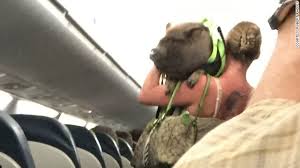 You can imagine the stories Heather can tell. One story she tells us is about a male passenger who looked like he could be a boxer, as he had that big kind of muscular build. On the flight with him, he had his emotional support kitten. While she thought it was really cute, the lady next to him was allergic and didn't tell anyone until they were already in the air and there were no seats left.
You can imagine the stories Heather can tell. One story she tells us is about a male passenger who looked like he could be a boxer, as he had that big kind of muscular build. On the flight with him, he had his emotional support kitten. While she thought it was really cute, the lady next to him was allergic and didn't tell anyone until they were already in the air and there were no seats left.
Some people don't like to sit near kid or near animals. It seems everyone has a problem and you can't please everyone!
A couple weeks ago, a passenger made headlines when she was kicked off a plane with her "emotional support" pig. A full-grown pig on a plane! Seems the pig caused a disruption, pooping right there in the aisle. The airline had allowed the passenger to board with it because it was an emotional support animal, and yes, a full-grown pig qualifies as an emotional support animal. So does a miniature horse. Heather said she can barely get 14 first-class coats to fit inside the closet on a Boeing 737, and has yet to run into a bulkhead row big enough to accommodate a horse.
On Heather's flights, she states she's been lucky and hasn't had the abnormal service animals like pigs or miniature horses. But don't get her wrong, she feels people who need these animals should have them.
She tells us that there is a Rooster that has flown frequently on flights and a duck that even got loose and ran up to first class and bit a passenger. There was another time when a service dog was growling at the flight attendants every time they walked by.
In training, they're taught how to evacuate a plane in 90 seconds, how to take down terrorists with their bare hands, how to put out fires and, of course, how to serve a five-course meal. But there is nothing about animal control!
Heather feels that everyone has to be in the flying tube together, so they all need to make it work. In these days, everyone seems to be in a "Me, me, me world" and it's all about their issues and problems. It's gotten so bad, there's not even enough space to bend over and reach into your bag without smushing your face against the seat in front of you. When she's rolling down the aisle with the cart and looks around, she feels your pain and does what she can to make people happy with the tools she's been provided, but it's impossible to please everyone.
Flying can feel like an episode of Survivor, which is why Heather thinks we should all do our part to make things go a little smoother. But perhaps people should think ahead, and if they are going to travel, get a service animal that can travel easily, not a barnyard animal, maybe perhaps maybe a Guinea Pig?
http://www.heatherpoole.com
US Airways Apologizes to PTSD Sufferer
Veteran Eric Calley
 Former U.S. Marine Eric Calley suffers from Post Traumatic Stress Disorder (PTSD). He is quite thankful for his service dog, "Sun." Recently, Calley had a run-in with U.S. Airways when they denied proper seating for his service dog and berated him with insults.
Former U.S. Marine Eric Calley suffers from Post Traumatic Stress Disorder (PTSD). He is quite thankful for his service dog, "Sun." Recently, Calley had a run-in with U.S. Airways when they denied proper seating for his service dog and berated him with insults.
Eric Calley is a former U.S. Marine who served two tours in Iraq. Calley suffers from PTSD and Sun, a Doberman Pinscher, is his current service dog. Eric also works as an advocate for fellow veterans who suffer from the affliction.
Eric explains that there are a lot of variations of PTSD and that it is not curable, it is only manageable. He states, "You have to manage it before it manages you."
Over the last eight to nine years, since his first tour in 2003 and his second tour in 2004/2005, Eric has learned how to cope. What has helped him do this were his service dogs. He states that service dogs do a huge wonder for veterans with PTSD, brain injuries and all different types of disabilities, including amputations and mobility functions.
Eric states that his current service dog Sun is a Godsend. His first dog, Liberty, was a Red Doberman who was at Eric's side since he got out of the service until her passing. While most organizations told Eric it would be at least a year before he could get a new dog, Guardian Angels Service Dogs in Florida were contacted and provided Eric with Sun within six months.
Sun monitors his heart rate, his breathing and the tension in his muscles. If Sun notices a change, she immediately nuzzles Calley with her nose to calm him. She also jumps in his lap to put warm pressure on his chest.
Seeing a need, Guardian Angels Medical Service Dogs created "Liberty's Legacy" in Michigan to bring service dogs from Florida to veterans, through fundraising. Eric tells us that there are around 11,000 veterans a year come back into Michigan and that a third of them will have PTSD or some variation of it.
Now, Eric and Sun travel to Florida frequently by plane and it was yet another case of someone not understanding what a service dog looks like. The pair were on a U.S. Airways flight from Florida to Detroit. Eric had troubles from the very beginning from trying to obtain a boarding pass and selecting a seat but it didn't end there. While on the flight, Sun, who was relatively new to being a service dog, got a little scared after the wheels went up after takeoff. She was spooked and she jumped up in the vacant seat next to Eric. Eric didn't know she wasn't allowed in a seat, and two stewardesses walked by and said nothing, they even petted Sun. But one stewardess came to them and started yelling at Eric, stating that the dog couldn't be on the seat. Eric then had Sun go to the floor, but the Stewardess kept yelling for a time before she left.
Upon the descent of the plane, Sun once again got spooked. This time she put her paws on Eric's lap. This once again brought down the wrath of the stewardess.
At this point in time, the other passengers started to speak up and defended Eric and Sun. But the stewardess threatened to have the police waiting for Eric when he got off.
When Eric got off the plane, many passengers came up to him in his defense. There were about 15 people in a line waiting for him to get off the plane. They told him that they thought he was treated very badly by the airline.
A few weeks after the flight, Eric received an apology in the form of a letter from U.S. Airways. The letter says, "It appears our airport personnel didn't handle the situation with the quality customer care we expect." Eric states that the problem is that they are not trained adequately on handling service dogs.
Eric is speaking out about this to raise awareness on behalf of veterans and those with service animals. He states that we are going to continue to have this huge influx of new veterans coming back. It can take a veteran four to five years after getting out to even attempt to get help. The thing he wants U.S. Airways to understand is that this is going to be a growing problem.
Eric is promoting Liberty's Legacy - a program helping veterans from Michigan to get service dogs. His goal for the New Year is to bring "as many dogs as possible" to Michigan veterans.
http://medicalservicedogs.com
"HERO PEOPLE OF THE WEEK" - Kristin Allen - Wildlife Rehabilitator
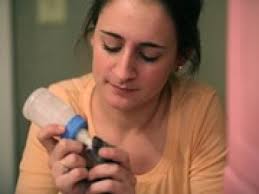 Kristin Allen is a volunteer wildlife rehabilitator with the Kentucky Department of Fish and Wildlife. She rescues orphaned, sick, displaced or injured wild animals. Kristin houses them and arranges for veterinary medical care with the goal of releasing them back to their natural habitat. She has cared for hundreds of animals over the years.
Kristin Allen is a volunteer wildlife rehabilitator with the Kentucky Department of Fish and Wildlife. She rescues orphaned, sick, displaced or injured wild animals. Kristin houses them and arranges for veterinary medical care with the goal of releasing them back to their natural habitat. She has cared for hundreds of animals over the years.
Kristin Allen has loved animals since she was a young child. Before she was a wildlife rehabilitator, it seemed all of the animals found her.
Four years ago she started rehabilitating wildlife and got her license. Originally she was only working with mammals. But when she rescued a red-tailed hawk, which had been hit by a car and was on the side of the road, things changed.
Kristin doesn't think that people understand that these injured birds can be saved. They seem to know about dog and cat rescues but aren't aware of agencies for rehabilitating wildlife. She said people don't know that if by chance an owl runs into your car, you don't have to leave it there on the side of the road to die. There are people who will take care of this animal and try to get it well enough to be released back in the wild. They will even give you information on how to treat and watch the animal until help arrives.
But how do you find these people? With everyone having a SmartPhone or access to the Internet, you just need to type in "Wildlife Rehabilitator" for the state you live in. You will usually be given a choice of a wildlife center or you will find a list of wildlife rehabilitators in the area.
For Kristin, rehabbing is a family affair, with her caring for many of these animals in her home. Her children, Adrienne, Grant, Madeline and Sophia, are all animal lovers and help with everything from feedings to vaccinations to cage cleaning. Her husband John is a pro at bottle washing.
 Learn more about Kristin Allen and other everyday heroes on Bandit Patrol, which airs Saturdays 10/9 C on Nat Geo WILD. You will meet the everyday heroes who rescue, rehabilitate and release injured and orphaned wild animals in Western Kentucky. These state-licensed volunteers answer emergency calls day and night to provide the best care for each species. For these dedicated individuals, the animals come first, despite the constant sacrifice of time, money and sleep. The ultimate goal is to return the animals back to the wild, where they belong. Along the way, they must strike a delicate balance between up-close care and doing everything in their power to ensure the animal remains wild. From abandoned owls, to aggressive raccoons, to ailing raptors, these are the rescuers who make sure our wild animals remain safe.
Learn more about Kristin Allen and other everyday heroes on Bandit Patrol, which airs Saturdays 10/9 C on Nat Geo WILD. You will meet the everyday heroes who rescue, rehabilitate and release injured and orphaned wild animals in Western Kentucky. These state-licensed volunteers answer emergency calls day and night to provide the best care for each species. For these dedicated individuals, the animals come first, despite the constant sacrifice of time, money and sleep. The ultimate goal is to return the animals back to the wild, where they belong. Along the way, they must strike a delicate balance between up-close care and doing everything in their power to ensure the animal remains wild. From abandoned owls, to aggressive raccoons, to ailing raptors, these are the rescuers who make sure our wild animals remain safe.
http://channel.nationalgeographic.com/wild/bandit-patrol
Thinking Globally. Acting Locally. Do you know someone that should be nominated for our Hero Person of the Week? Send us an email to: YourVoice@AnimalRadio.com.

Animal Radio's HERO PEOPLE is brought to you by Zeuterin a safe, permanent and virtually painless alternative to surgical castration.
 New Year's Resolution for Cat Owners - Don't Forget Kitty - Dr. Debbie
New Year's Resolution for Cat Owners - Don't Forget Kitty - Dr. Debbie
While it doesn't seem right, cats 30% less likely to receive veterinary care than dogs.
Patty cringes at the idea of taking Muffin, her 12 year old Persian cat to the veterinarian. She envisions the ten minute wrangle to catch her, the acrobatics placing Muffin in the pet carrier, and the ear piercing protest on route to the hospital. Patty observes Muffin lounging contently on the couch, considers her cat's healthy appetite, trouble free litter box use, and indoor lifestyle. Patty puts the carrier away declaring, "Why would I want to go through the hassle taking her in to the vet when I can see she is perfectly healthy." But skipping that veterinary checkup could mean big trouble for Muffin though.
Senior cats over seven years old can develop diseases such as hyperthyroidism, hypertension, osteoarthritis, kidney disease, and diabetes. And failing to detect these problems can lead to more advanced health problems, less treatment options, less favorable outcome, and higher future veterinary costs down the road.
Why Are Cat's Forgotten?
In the U.S. cats are the most popular household pet, with over 80 million pet cats nationwide. But despite the cat's status as top pet, they are 30% less likely to be taken to the veterinarian than their canine counterparts. So why don't cats receive the same veterinary care that dogs do?
There are many reasons why cat owners might not present the cat to the veterinarian. Cat owners may not see perceive a health concern. Cats don't typically complain, especially with chronic developing diseases, so cat owners miss the boat if they expect kitty to tell them when they are sick. The self-sufficient feline nature makes it is more difficult for pet owners to detect abnormalities in appetite, elimination and behavior.
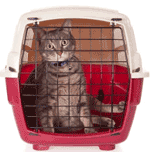 The economy is a common reason that some pet owners fail to get kitty in to the veterinary office. Some cat owners forgo preventative veterinary visits as a means to minimize costs, not realizing the long term health consequences. And like Muffin's owner, many cat owners' just don't want to stress the cat and chose to skip the vet travel and feline melodramatics.
The economy is a common reason that some pet owners fail to get kitty in to the veterinary office. Some cat owners forgo preventative veterinary visits as a means to minimize costs, not realizing the long term health consequences. And like Muffin's owner, many cat owners' just don't want to stress the cat and chose to skip the vet travel and feline melodramatics.
Some cat owners don't value the veterinary examination or the health clues it provides. And preventative pet care for some owners consists solely by vaccinations, and when those aren't pursued, veterinary care falls by the wayside.
My Perspective
In my veterinary office I've seen cat patients whose last veterinary exam was many years ago…two, three or even ten years ago. That's a long time for a cat's medical problems to brew and develop. Sometimes it's already too late, and advanced disease has set in. I'd much rather see those cats years before when we can better help them, rather than at a euthanasia visit.
During a veterinary exam, the doctor performs a comprehensive examination to detect abnormalities. Maybe it's a new lump, a change in body condition, an altered stance, a tell-tale odor of kidney disease, or a useful clue provided by the owner's health history. The veterinary examination is the best $45 you can invest in your cat's health and which generates teamwork between you and your vet to keep your pet healthy.
Resolutions for the Future
No wonder cats are the favored pet with their gorgeous looks, complex personalities and mysterious aura. Resolve to keep your kitty healthy in 2015 and ensure your cat gets to the veterinarian at least once a year, although twice a year is preferred for senior cats. When that next veterinary visit comes, be armed with confidence, patience, and of course, a sturdy pet carrier.
Featured veterinarian known as "Dr. Debbie" on national pet radio program, Animal Radio. Ebook author of "Yorkshire Terriers: How to Be Your Dog's Best Friend"; "Pugs: How to Be Your Dog's Best Friend"; "Mini Schnauzers: How to Be Your Dog's Best Friend"; and "Shih Tzu: How to Be Your Dog's Best Friend."
http://www.drdebbie
It's a Wacky Wednesday Here at the Animal Radio® Studios
WackyWed Contest IS ON - LIKE your FAVORITE pic and the three pics with the most LIKES & SHARES are this week's winner will receive a prize package from Marshall Pet Products.
TO ENTER Send us your FUNNY pet pic to WackyWed@AnimalRadio.com - (Please put WACKYWED in the subject line & give us your pet's name, your name & where you hail from) If YOUR pic is chosen then spread the word to your friends & family on Wednesday - the pics w/the most LIKES and SHARES will be the winner!

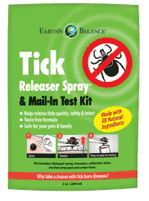 This week we are giving away a Wacky Wednesday prize consisting of Tick Release Spray along with Bacon and Peanut Butter Pill Paste from Marshall Pet Products. Tick Releaser Spray helps release the tick and provides a handy test kit for you to submit the tick to be tested for disease, while the pill paste makes it easier to pill your pet.
This week we are giving away a Wacky Wednesday prize consisting of Tick Release Spray along with Bacon and Peanut Butter Pill Paste from Marshall Pet Products. Tick Releaser Spray helps release the tick and provides a handy test kit for you to submit the tick to be tested for disease, while the pill paste makes it easier to pill your pet.
Marshall Pet Products - High Quality Pet Products for Dogs, Cats, Ferrets, Small Animals, Horses & Birds.

Join Animal Radio® on Facebook for Wacky Wednesday! Win great prizes every week for your wacky pet pictures. Last month we gave out goodies from Company of Animals, EZ Dog, ESPREE and more. Visit us on Facebook now.
Animal Radio® News with Tammy Trujillo
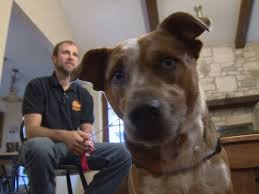 Disabled Vet Evicted Over Unpaid Pet Fee
Disabled Vet Evicted Over Unpaid Pet Fee
We've been seeing more and more stories about the fees landlords charge people who move in with pets. Now an unpaid pet fee has resulted in a disabled Army Veteran and his service dog being evicted from a mobile home in Bandera, Texas. David Palasek served for seven years including tours in Iraq and Afghanistan with the Army and the National Guard. He refused to pay the pet fee, citing Section 504 of the Fair Housing Act that states service animals are not pets, so are not subject to a pet fee. Palasek suffers from a traumatic brain injury as well as damage to his neck, spine, knee and shoulder suffered in a Humvee accident and IED attack. He also is a cancer survivor. He says his red-heeler mix service dog Checkers helps him get through the day. When he was evicted from his mobile home last month, the pet fee had ballooned to $2,500 dollars. The matter is now being fought out in court. Palasek says he is fighting it because if something like this happened to him, it could, and probably is, happening to other people.
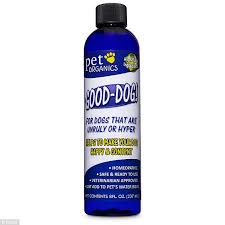 Would You Give Your Dog a Glass of Wine to Help Him Chill?
Would You Give Your Dog a Glass of Wine to Help Him Chill?
No matter how hyper your dog is, you would never give it an alcoholic drink to help it chill, would you? You might have been doing just that if you used the product Good Dog made by Pet Organics. It claims to be a homeopathic way to calm down unruly dogs with 'all natural ingredients.' Turns out that among those 'natural ingredients' is 13-percent alcohol, about the same amount that is wine. A check with the Pet Poison Helpline states that even a small amount of alcohol can be toxic for cats and dogs. Petco says that Good Dog is supposed to be diluted in water and that if it is used as directed, it would not have a negative effect. In the 10 years that the product has been sold at Petco, there have been no reports of deaths or illness. Still, there is a petition circulating on the Internet to urge Petco to stop selling the product. One veterinarian says this brings up a bigger problem, the fact that homeopathic drugs for pets are not regulated.
 Cover Your Pet's Private Parts With "Rear Gear"
Cover Your Pet's Private Parts With "Rear Gear"
Rear Gear is made by a company in Portland Oregon and is basically a tag that hangs on your dog or cat's tail to cover up their rear. The company's slogan is "No More Mr. Brown Eye." It also claims to help boost your pet's confidence. The $6 tags come with a variety of pictures on them including cupcakes, disco balls and biohazard symbols.
Some Stores No Longer Selling Jerky Treats Made In China
Petco promised to remove all treats from China from it's stores and on it's website by the end of 2014 and kept that promised. Petsmart says those treats should be out of its stores by March. Costco removed these treats from all of its stores back in July and many smaller pet stores have already done the same. So here's the question, treats from China have been linked to the deaths of at least one thousand dogs in the U.S., so why weren't the chicken, duck or sweet potato jerky treats banned or recalled? Therein lies the mystery. Since the first problems surfaced in 2007, the FDA has tested them time and time again and even had the factories in China checked and cannot find anything in the products that could cause health problems. Even though the treats are not being readily sold anymore, the FDA says it is still trying to figure things out.
 Hi-Tech Pet Products
Hi-Tech Pet Products
The Consumer Electronics Show just wrapped up in Las Vegas a few weeks ago, and while all kinds of companies showed off their products aimed at health and entertainment and such, some pretty interested pet-related items were unveiled as well. Among them, Fitbark, a little device that goes on your dog's collar and monitors how much your dog plays and runs. It pretty much gives you a rundown of your dog's day so you can see if he or she is getting enough exercise. Another product is the Go Fetch Dog Harness that has a special place to mount a Go Pro camera so you can shoot video from your dog's vantage point. For the hi-tech feline, Cat Fishing 2 is an app that let's your cat finally get some work done on your tablet. The apps maker says bare glass screens on most tablets and phones should hold up to your cat's claws with no problem, but plastic screen-protectors probably won't.
New Year's Resolutions For Your Pets
A great resolution would be to make sure that your pet's identification tags are up-to-date with the correct contact information and to make sure that your contact information is correct as well with the company attached to your pet's microchip. If you're not sure what company that is, a scan of your pet by your vet should be able to tell you.

NEWS UPDATE brought to you by Drs. Foster & Smith, affordable pet supplies. Low prices every day, so you save on every order.
 Listen to the entire Podcast of this show (#791)
Listen to the entire Podcast of this show (#791)





